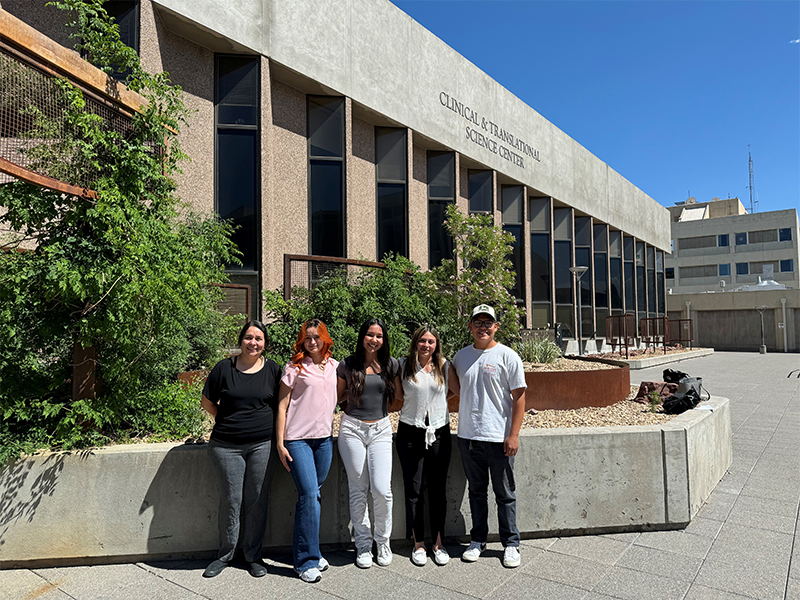
A lack of research support can slow down the engine of clinical and translational research which, in turn, can curtail medical advances. Without quality professionals, research projects can be compromised.
“There are many consequences to this shortage,” says Annette Crisanti, PhD, vice chair of research in UNM School of Medicine’s Psychiatry and Behavioral Health Sciences Department. “For example, a lack of research support can slow down the engine of clinical and translational research which, in turn, can curtail medical advances. Without quality professionals, research projects can be compromised.”
Some universities have even had to return federal funding or pass up research opportunities because they cannot find and hire the requisite staff such as clinical research coordinators and regulatory affairs professionals.
The new UNM Clinical and Translation Research Experience (CT-REx) aims to address this challenge.
CT-REx focuses on college students who are from rural, Native American, or Hispanic communities. Individuals who are typically underrepresented in CRP positions.
Several key staff from UNM CTSC, including Anupama Suryanarayana, Brandon Good, Donna Sedillo, Rachel Lukes, Debbie Lovato, Susan Tigert, and Regis Lacher along with Justine Saavedra, from the Division of Community Behavioral Health, Department of Psychiatry and Behavioral Sciences, have helped Crisanti develop and implement the program.
“For the first year of CT-REx, we have intentionally kept the cohort small. We have selected five students from across the state,” says Crisanti. “Two are Native American and three are Hispanic.”

The students began their 10-week summer experiential course late May.
“Our hope is to enroll a new cohort every spring, with the goal of increasing the class size,” says Crisanti. “We will decide how many students to enroll next year based on the need and success of this first effort.”
The program provides skill-based training, mentorship, and hands-on learning in lab work, data management, participant interaction, and program evaluation. For a real-world perspective, students have extensive opportunities to learn from, and interact with, currently employed CRPs. Plenty of support is in place with program advisors as well as program staff who work with each student to develop their individual career pathway. Other instruction includes career exploration seminars, resume writing, and job search strategies. In addition to all of this, CT-REx participants receive UNM housing, some meals, and a stipend.
An important component of CT-REx is its partnership with the summer research UNM School of Medicine Undergraduate Pipeline Network (UPN) which runs concurrently. The program focuses on college students from around the country who have specific interests in research and graduate education.
“The collaboration has been incredible,” says Crisanti. “The UPN is providing a solid foundation for the CT-REx program and will provide several team-building exercises and opportunities for learning. UPN has been in place at HSC since 2009, so they have a long and successful track record of implementing these types of training programs for college students.”
CT-REx is funded through an award to the UNM CTSC from the New Mexico Education Department’s Technology Enhancement Fund.
